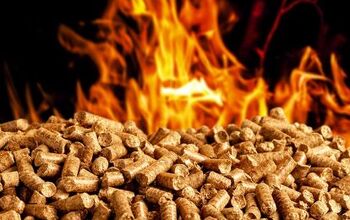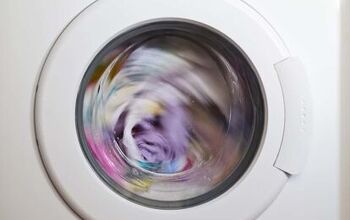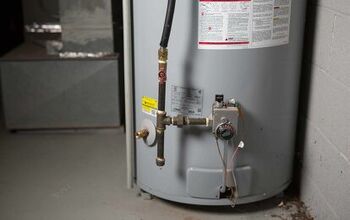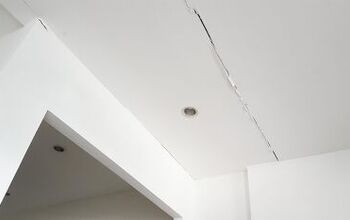Hot Water Heater Making A High-Pitched Noise? (Fix It Now!)

Is your hot water heater making a high-pitched noise that is concerning you? This noise could indicate a deeper problem with your water heater, resulting in cold showers, damage to your home, or worse. Typically, if you hear an unusual noise coming from your water heater, it will range in pitch from a slight hum to a screech.
Getting to the root of the problem can be frustrating. That said, there are several ways to find the source and repair it. That’s what we’ll be talking about here.
So, what are the causes and solutions to hot water heaters making high-pitched noises, and what can you do?
There are many causes for a hot water heater making a high-pitched noise, including sediment build up, leaks, loose pipes, high pH levels, and more. The good news is many of these issues are easy to identify and have fairly straightforward fixes. That said, the best thing you can do for your water heater is perform routine maintenance.
In this article, we’ll be going more in depth about the most common reasons why your water heater is making unusual noises and how you can fix them. Let’s dive in!
Do You Need to Hire a Plumber?
Get free, zero-commitment quotes from pro contractors near you.

6 Common Reasons Why Your Hot Water Heater is Making a High-Pitched Noise
Like we said, your hot water heater making a high-pitched noise can be the result of many different things. For the sake of saving you time and energy, we’ve boiled it down to the most common culprits. Now don’t panic, but every one of these should be alarming, and you should resolve the issue as quickly as possible.
Sediment Build-Up
Some areas will also have a significant build-up of minerals in the water. In these areas, the water is considered “harder,” which will sometimes cause your water heaters to slow down. After many years of use, your water heater might begin to make a popping sound. It means that there might be a limescale build-up. Sediment build-up can also cause leaks that can damage the rest of your home.
The FixIf this is the situation, you should clean your tank. The cleaning process is pretty straightforward, but it’s important to follow all the steps to avoid doing more damage:
- Turn the water heater off.
- Turn the cold water valve off.
- Let the water cool.
- Attach a drain or hose to the drain valve.
- Place the hose in a bucket or drain.
- Turn on your faucets.
- Turn on the drain valve.
Once you’re done draining the sediment, be sure to turn the drain valve off, turn the cold water valve back on, and turn the water heater back on.
Debris Build-Up
If debris builds up in your water heater, it could cause it to overheat and therefore not work properly. When this problem occurs, your water heater will make a bubbling noise similar to a coffee maker.
Most water heaters will make a rumbling sound when the water in the water heater is heating up. If you hear constant rumbling, it might indicate a significant build-up of dirt in your water heater. Although this isn’t dangerous, this can cause your water heater to under perform.
Any of these sounds can indicate a debris build-up covering up the part of the water heater that boils the water.
The FixTo avoid further issues, remove the dirt from the tank by draining the water and rinsing out the tank. You can either flush the system by following the same steps listed above or by removing the inside piece in the tank and manually cleaning it. This process is also very easy:
- Soak the piece in a dish filled with vinegar for 20 minutes to an hour.
- Scrub it with wire brush to help get the remaining debris off.
- Repeat this process until you’ve removed all dirt and debris.
Issues in the Pipes
Pipes can produce annoying noises when cold or hot water travels through them, causing a change in pressure. When the pressure has increased, the pipe will expand and bump into other things causing a ticking noise.
The FixThe easiest way to fix this issue is to pinpoint where the sound is coming from and use the proper tools to tighten the pipe. Another fix could be to decrease the pressure or temperature of your water heater. Some ticking problems are not fixable by tightening the pipes. If this is the situation, you might have to buy new piping and replace them.
Leaks
A leak is a primary cause of sizzling in a water heater. This sizzling happens when free water is heated up against the burner. There are a number of issues that can lead to a leaking water heater. The most common problems include loose valves, excessive pressure in the tank, or issues in the pipes that are connected to the water heater.
The FixIn most cases, you should call your local plumber for assistance to fix a leak as soon as you notice it. However, there are some simple DIY solutions you can try. The first thing you’ll need to do is turn off the water heater and the water pressure. Then, you’ll be able to look around for where the leak is originating. Here are the most common areas leaks occur and how to resolve the issue:
- Pipe fittings above the water heater. If water is leaking from the pipe fittings, simply tighten the loose fittings with a wrench. This is a possible DIY fix if you have flex pipes. Copper pipes, on the other hand, must be handled by a plumber.
- Drain valve at the bottom of the tank. There isn’t much you can do with a leaky drain valve other than replace it. Be sure to drain the water heater before replacing it.
- Around the temperature and pressure relief (TPR) valve. Leaks from the TPR valve most often occur when too much pressure builds inside the tank. To fix the issue, reduce the temperature or pressure of the water coming through the cold water supply line.
Broken Thermostat
If your thermostat is broken, it might say the water is hotter than it is, which can cause a high-pitched noise. There are a few other signs to keep an eye out for if you suspect there is a problem with your water heater’s thermostat. This includes having water that is too hot, not enough water, or water that takes too long to reheat in the tank.
The FixWith a broken thermostat, it’s often easiest to get in touch with a local contractor. That way, you can have peace of mind knowing you’re getting professional care for your water heater. If you want to deal with a broken thermostat on your own, here’s all you have to do:
- Check the upper and lower thermostats for power supply.
- Press the reset button to reboot your system.
If you notice there is no power reaching the upper thermostat system, you’ll have to replace the thermostat. However, if it is getting power, but you’re still not getting hot water, you will have to replace the upper heating element.
High pH Levels
Does your heater have aluminum anode rods? If the answer is yes, then your water heater might make a popping or knocking noise. Water can react with the rods because of their high pH levels. This is most common in gas water heaters. Over time high pH levels can cause a build-up of gel on the bottom of the tank, which decreases its overall efficiency.
The FixThe best thing you can do to resolve this problem is clean the water tank out. You can either do this by flushing the system, using the steps we listed above, or manually cleaning it with warm water, vinegar, and a rag.
SIDE NOTE: Sometimes a water heater can make a faint humming noise when cold water flows into the water heater. You don’t need to worry about this noise, but you can still fix it by turning up the heating element.
Basic Water Heater Maintenance Tips
The best way to avoid issues with your water heater is to perform preventative maintenance. That means you should be checking on your water heater even if you don’t suspect there is a problem. Follow these three steps to help you avoid expensive repairs to your water heater.
- Check the anode rod every two to three years. This is a crucial part of the heading process in your water heater that can rust over and cause issues.
- Drain the tank every so often and check for sediment. This helps keep your water heater clean and lessens the chances of clogging in your water heater pipes.
- Periodically lower your water heater’s temperature to 120 degrees Fahrenheit. This will give your water heater the necessary breaks to cool down. A perfect time to do this is when you plan on not using hot water for like leaving for a trip.
What is the Lifespan of a Water Heater?
Water heaters can make a dent in your wallet. Typically, it can cost anywhere from $300 to $2,000 to install a new water heater. So, it is good that they can last at least a decade. A water heater’s lifespan is about 10-15 years. After you reach the ten year mark, it’s likely you’ll see the internal parts begin to malfunction.
If you are not sure you need a new water heater, we recommend that you call a professional to come to evaluate it. Depending on the level of the repairs, the parts can be cheap to replace. Plus, labor costs will be more manageable when dealing with minor damages.
Do You Need to Hire a Plumber?
Get free, zero-commitment quotes from pro contractors near you.

Final Thoughts on Your Hot Water Heater Making High Pitched Noises
It can be alarming when you discover your hot water heater making a high-pitched noise. When you hear a weird sound coming from your water heater, we advise that you look into it right away.
Not doing so could lead to hundreds or even thousands of dollars in repairs and even more damage to your home over time. Finally, if you are not comfortable fixing the problem yourself, call a local plumber to come take a look at it.

We are a team of passionate homeowners, home improvement pros, and DIY enthusiasts who enjoy sharing home improvement, housekeeping, decorating, and more with other homeowners! Whether you're looking for a step-by-step guide on fixing an appliance or the cost of installing a fence, we've here to help.
More by Upgraded Home Team












![10 Best Electric Lawn Mowers - [2022 Reviews & Top Rated Models]](https://cdn-fastly.upgradedhome.com/media/2023/07/31/9070486/10-best-electric-lawn-mowers-2022-reviews-top-rated-models.jpg?size=350x220)
![10 Best Electric Pressure Washers – [2022 Reviews & Guide]](https://cdn-fastly.upgradedhome.com/media/2023/07/31/9070600/10-best-electric-pressure-washers-2022-reviews-guide.jpg?size=350x220)













